SUMMARY
This is AI generated summarization, which may have errors. For context, always refer to the full article.
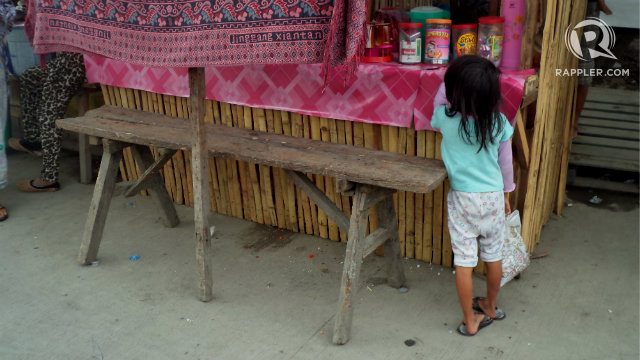
MANILA, Philippines — He was freed 13 years after raping a girl.
He was released in March, National Women’s Month. Irony, reality; the country sometimes mixes the two. His jail time was shortened due to “good conduct.” He even built a tennis court, a gymnasium, a bakery, and private kubols inside the Bilibid.
In 1996, he met an 11-year-old girl through a pimp. After inspecting the girl’s body, he promised her a showbiz career. He was a congressman and a TV producer then.
The girl never met her parents, she was entrusted to a pimp.
It was settled. The girl would stay with the congressman for P5,000/day. This was not the first time the girl was sold for sex. At age 9, she was prostituted to a tourist. “No” is useless, the girl learned. Refusal meant a punch in the head, it meant hunger, it meant guilt – the money paid for her needs, after all, the pimp insisted.
The rapes began in June and ended in August, when the girl managed to escape and report to the police.
I did not force her, the pimp argued. Political blackmail, the congressman claimed. Both were found guilty: the pimp for child prostitution, the congressman for statutory rape and acts of lasciviousness. Both were eventually freed.
The old story remains fresh in the minds of advocates. Others, however, may have already forgotten the case and the fact that several other children are sold for sex here and abroad.
Kids, sex, sale
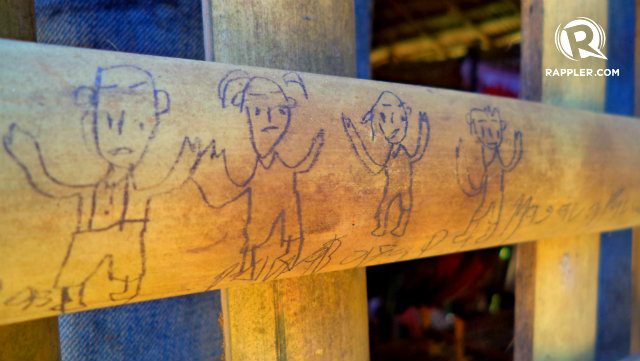
Commercial sexual exploitation of children (CSEC) is a “significant problem” in the Philippines, the US Department of Labor reported in 2012.
CSEC happens when minors engage in sexual activities – prostitution, pornography, sex tourism, trafficking or forced marriage for sexual purposes – for cash or other material payments, UNICEF explained. Third parties like pimps usually profit from such transactions.
The number of sexually exploited children has fluctuated over the years, according to the Department of Social Welfare and Development (DSWD).
| Child sexual exploitation cases handled by DSWD | ||
| 1998 | 2004 | 2014 |
| 118 | 348 | 180 |
(Source: NSCB, DSWD)
In 2014, 33% of these children were under 14.
Majority are girls, statistics show, but boys are victims too. “Confiding about abuse seems harder for boys,” said Dolores Alforte, executive director of ECPAT Philippines, an international non-governmental organization protecting children’s rights.
“Only reported cases are indicated in official statistics but for every one report, there are hundreds more that are unreported,” the Council for the Welfare of Children (CWC) stressed.
CSEC threatens children’s “physical and psychosocial integrity,” ECPAT believes. It also puts children at higher risk of physical violence, unwanted pregnancies, and sexually transmitted diseases, the International Labor Organization (ILO) observed. From 1984 to 2012, over 8,000 abused Filipino children were reported to have AIDS/HIV, CWC reported.
Those vulnerable to CSEC include the abandoned, migrants, drop-outs, homeless, and laborers. Children from dysfunctional families or have sex workers as guardians are also at risk, ILO added.
But poverty remains the biggest factor. Children feel obligated or are forced to earn.
In the Philippines, children are the 3rd poorest basic sector, next to fishers and farmers, the National Statistical Coordination Board revealed. Their poverty incidence has not changed in the past 6 years.
| Poverty incidence among children | ||
| 2006 | 2009 | 2012 |
| 35.2% | 35.3% | 35.2% |
(Source: NSCB)
All these can disrupt children’s education, limiting their opportunities as adults. Although some children successfully break out of the sex trade, others are caught in a cycle.
Child sex tourism
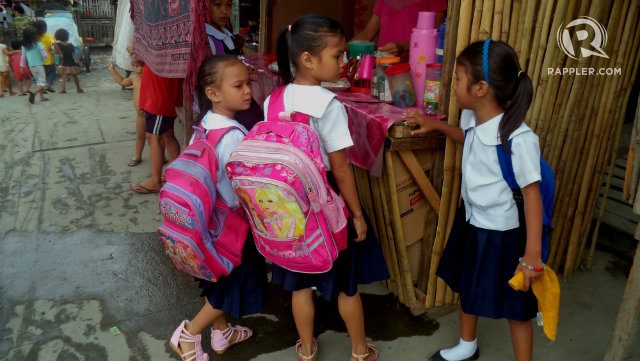
The Philippines is seen as a “traditional child sex tourism destination” by offenders, ECPAT observed. Accommodations, transportation, and other related services are all involved in sex tourism. Hence, it is not only the customer who commits crime, but everyone who helps facilitate.
“It’s no longer true that children are only trafficked from provinces to Manila, it’s also vice-versa,” Alforte stressed. Famous travel destinations can be hotspots, ECPAT found, such as Puerto Princesa, Boracay, and Panglao.
Tourists – foreign and local alike – usually pick up children from clubs, karaoke bars, discos, or massage parlors, and take them to resorts or hotels. Some tour guides, drivers, waiters, motel staff and guards act as pimps. Peak seasons stretch from October to May.
Children entertain at least one to two customers daily, ECPAT observed in Boracay. Some work twice a week, others every day. Most work late into the night since competition is tough.
Some work solo, others have pimps. Many were lured by promises of overseas jobs, but ended up as sex workers. They live in makeshift dorms, usually located behind resorts, similar to brothels. Their earnings – sometimes big, sometimes small – support themselves and the families they left behind.
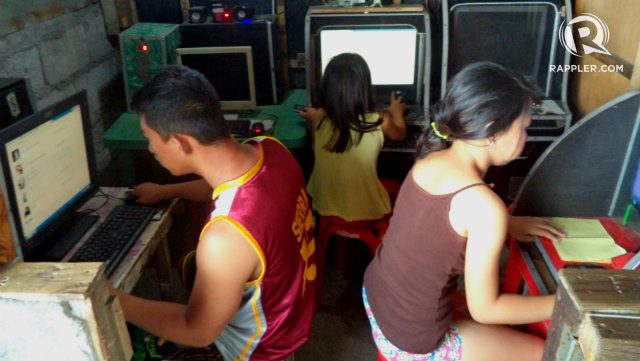
Some offenders “groom”, or shower with presents, children before the abuse, as a way of earning their or their family’s trust. They may also rip profits from their victims by producing pornography, with the Internet adding fuel to the fire. (READ: Online child abuse)
Meanwhile, “Akyat-Barko” (Climb-Ship) transactions still happen in urban poor settings, according to a source in Baseco, Tondo. Minors are paid to “climb” ships to provide sexual services. “Akyat–Truck” is the equivalent among non-coastal areas.
Solutions
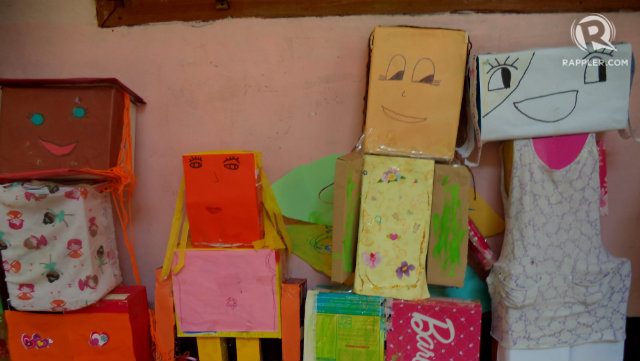
“Laws are in place, inter-agency councils are working, but the difficulty of child protection comes from the government’s devolution,” Alforte argued. “National laws should be well-implemented and monitored locally.”
At present, CSEC does not stop, but only transfers from one area to another. “Where law enforcement is weak, they go,” Alforte said.
The lack of awareness also contributes to CSEC. “Many are still unaware of laws, some local government units (LGUs) lack effort in educating the public,” she added.
To combat sex tourism, ECPAT provides personnel training for hotels and tourism businesses. The problem is that not everyone cooperates. Many hotels turn a blind eye in the name of profit, failing to help prevent or report abuse. “Some bribe the front desk to keep quiet,” Alforte said. “The Department of Tourism and LGUs should include child protection as a requirement for business permits.”
In fact, the congressman’s months-long rapes happened inside a fancy condominium.
All these still happen despite the country’s laws prohibiting establishments from promoting or facilitating trafficking and sex tourism.
Citizens are also advised to be more proactive in preventing child abuse. Here are some advice for communities:
- Be wary of private homes frequented by groups of children for no apparent reason. Cybersex operators already transferred from Internet shops to private homes to evade suspicion.
- Listen and trust children.
- Report cases or suspicious activities to authorities (i.e., barangay, police, social welfare office) and refer children to help professionals (i.e., psychologist, social workers).
- Guide children when using the Internet and watching TV.
- Teach children’s rights and corresponding laws to both minors and adults.
- Authorities should be more proactive, don’t wait for reports, strengthen investigations.
- Never discriminate victims, assist them instead.
To curb abuse, DSWD conducts prevention and rehabiliation programs for children. While the Department of Labor and Employment seeks to reduce child labor by 2016 through a convergence program supporting children’s needs.
The ILO also advises governments to provide better work opportunities for parents and education access for children to prevent them from being pushed into “exploitative situations.”
Until then, it’s business as usual for some of the country’s busiest children. Their pimps, playmates, and abusers are not stopping either; their mantra holds firm: Demand and supply, supply and demand. – Rappler.com
You can report child abuse cases to the following, according to DOJ:
- DSWD or the Child Health and Intervention and Protective Service (CHIPS): 734-4216
- NBI Anti-Child Abuse, Discrimination, Exploitation Division: 525-6028/525-8231 loc. 403 & 444
- Commission on Human Rights Child Rights Center: 927-4033
- PNP Operation Center: 722-0540 or your nearest police station
- DOJ Task Force on Child Protection: 523-8481 to 89, loc. 378 or your nearest Provincial, City or Regional Prosecutor
- Your nearest local social welfare office or the Local Barangay Council for the Protection of Children
To learn more about sexual exploitation, visit ECPAT Philippines. ECPAT also runs a home for abused children, you may report cases, donate, or volunteer via ecpatphil@gmail.com or 920-8151.
Got stories to tell? Share your articles or ideas on children’s, women’s, and gender issues with move.ph@rappler.com. Speak up on #GenderIssues!
Add a comment
How does this make you feel?
There are no comments yet. Add your comment to start the conversation.